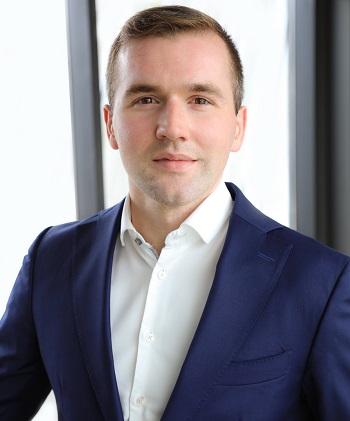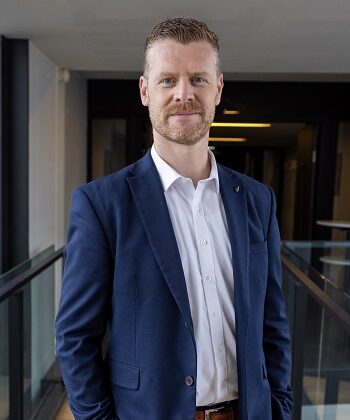Impact stories: Using data science research & applications to create value for business and customers

Share
IÉSEG, through its Center of Excellence for Marketing Analytics (ICMA) has been collaborating since 2020 with the international software company Enfocus. A team of the School’s data science researchers has been working with the company to help it respond to a series of challenges and ultimately to help provide value to its clients and partners worldwide. We look at how the collaboration began, the innovative project that has been rolled out and some of the outcomes that have resulted.
Background on Enfocus

Enfocus is an international software company that specializes in PDF Software and workflow automation. The company has been largely successful in the printing industry and is now expanding into other markets like office and administrative workflows as well. Founded 25 years ago, it is a business unit of Esko, a Danaher company, and has R&D and manufacturing facilities in Europe, USA, China and India. With headquarters in Belgium, Enfocus works with an international network of partners that brings its products & services to 100+ countries. The company has two main ranges of products: Pitstop: preflight and editing software for PDF; and the Switch automation platform: which is designed to help printers automate their workflow (for example relating to proofing documents or moving them from web to print into MIS or automating the prepress tasks that feed the presses).
The business challenge: the beginning of the collaboration between Enfocus and IÉSEG
One of the key company objectives in recent years has been to minimize and lower the level of customer churn (i.e., the number of customers who leave/stop using a product or service) notably by focusing on the value it provides its customers. “Our software products were initially sold with a perpetual license, which enables customers to use the product for ever. Increasingly, however, software products are moving to more recurrent revenue models (where consumers must renew after a set period for example through maintenance contracts and subscriptions),” explains Tomas Van Rossom, General Manager at Enfocus.
With the perpetual license, the products still have a renewable maintenance contract, (to help customers, with support, software updates, etc.). One of the challenges therefore in terms of customer retention is with regards the renewal of maintenance contracts.

“We saw an opportunity to leverage data science to understand the likelihood that customers are about to churn and to prioritize where to bring more value to our customers and focus our customer retention efforts,” Tomas explains. The company contacted Kristof Coussement (Director of IÉSEG’s Center of Excellence for Marketing Analytics and a Professor of Business Analytics at the School) to discuss this at length following a presentation he had given about the value of data for business. Both organizations then agreed on a three-year data science project involving members of ICMA working with the company.
Looking back, Tomas says he is happy they opted for a long-term project with IÉSEG. Not only did enable the company to implement different phases and learnings, but they had not realized the level of work needed in the first months, particularly in terms of cleaning and preparing data and then building prediction models. “Enfocus already had a data strategy collecting many different types of data,” he adds, “but it was challenging to put this to data to effective use and to make sure there was a real business case.”
How did IÉSEG and Enfocus work together and what have been the outcomes

Minimizing churn among the company’s wide range of clients around the world, therefore, was one of the starting points to the project. Emil Guliyev, a PhD candidate from IÉSEG and data scientist working with professors Kristof Coussement and Arno de Caigny from ICMA, was invited to come and work directly with Enfocus; on average one or two days every week depending on the phase of the project.
Tim Bernaerdt, Head of Customer Success at Enfocus highlights that the ICMA team all have a strong academic background but also have a very good understanding of business and how research can be applied to business. From the beginning of the collaboration, “they challenged us and showed us how to look at different types of churn (operational and global) to bring value to Enfocus”.
Emil initially worked intensively with different teams to clean and prepare the data enabling them to create a basetable that was ‘workable’. “This took more time than we expected” Tim notes “but during this time we got new insights into churn in terms of timing, differences between regions, and the needs of our customers”.
Once the data was prepared, Emil and the ICMA team could start working on prediction models – using innovative data science techniques. “We were impressed by the model in terms of accuracy – this gave us confidence we could use this in our business context,” Tim explains. Enfocus then set out implementing this model and making sure that relevant data were available to different teams/services and especially also to our partners, notably through the implementation of an automated workflow.

“We actually use our own product Switch for automating certain processes,” explains Freddy Pieters, Solution Architect at Enfocus. “My contribution was to automate the steps in the process so we can actually use the prediction model in our day-to-day business. This was done by creating flows in Switch that automatically gather the data from all different sources, launch the data science calculations and ultimately make the results available in our CRM package.”, he adds.
Relevant data is also made directly available to all their channel partners so they can see which customers are less likely to renew. This is crucial information for them in the proactive management of their clients.
Potential of data science – serving customers and future software development
Looking back all, the three members of Enfocus agree that the project has therefore already brought a number of tangible outcomes for the business.
“We now know that there are still many other possibilities from leveraging data. It is a vital part of our strategy: internally we can use data to steer departments better; and (externally) it can help our channel partners and create new value propositions for our customers, “explains Tomas Van Rossom. “We will be able to provide customers with insights about how they work, advice on how they can improve and steer our product and service development in the future to better answer their needs.”
Tomas also concludes that one of the important aspects is that data science is not managed in an ‘ivory tower’ at Enfocus: “It is not an isolated department that has insights but could potentially become frustrated if the business isn’t using it. Tim and his team are already using these learnings through the business through to contact with our customers.”
More information: please contact the ICMA team (k.coussement@ieseg.fr)
Contributors
Discover more Insights

Big Data & AI
International Women’s Day: “(Un)equal futures? AI’s impact on careers and societies” (online event – 9th March)
12/02/2026
1 min

Big Data & AI
Looking ahead to 2026: experts’ insights on AI, cybersecurity & coaching
26/01/2026
4 min

Big Data & AI
“Mastering AI for Strategic Business Success”: Interview
04/12/2025
4 min

Big Data & AI
AI & sales professions – how to navigate between opportunities and risks?
05/11/2025
4 min






